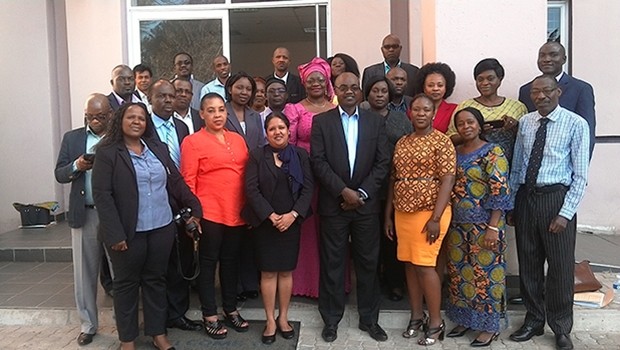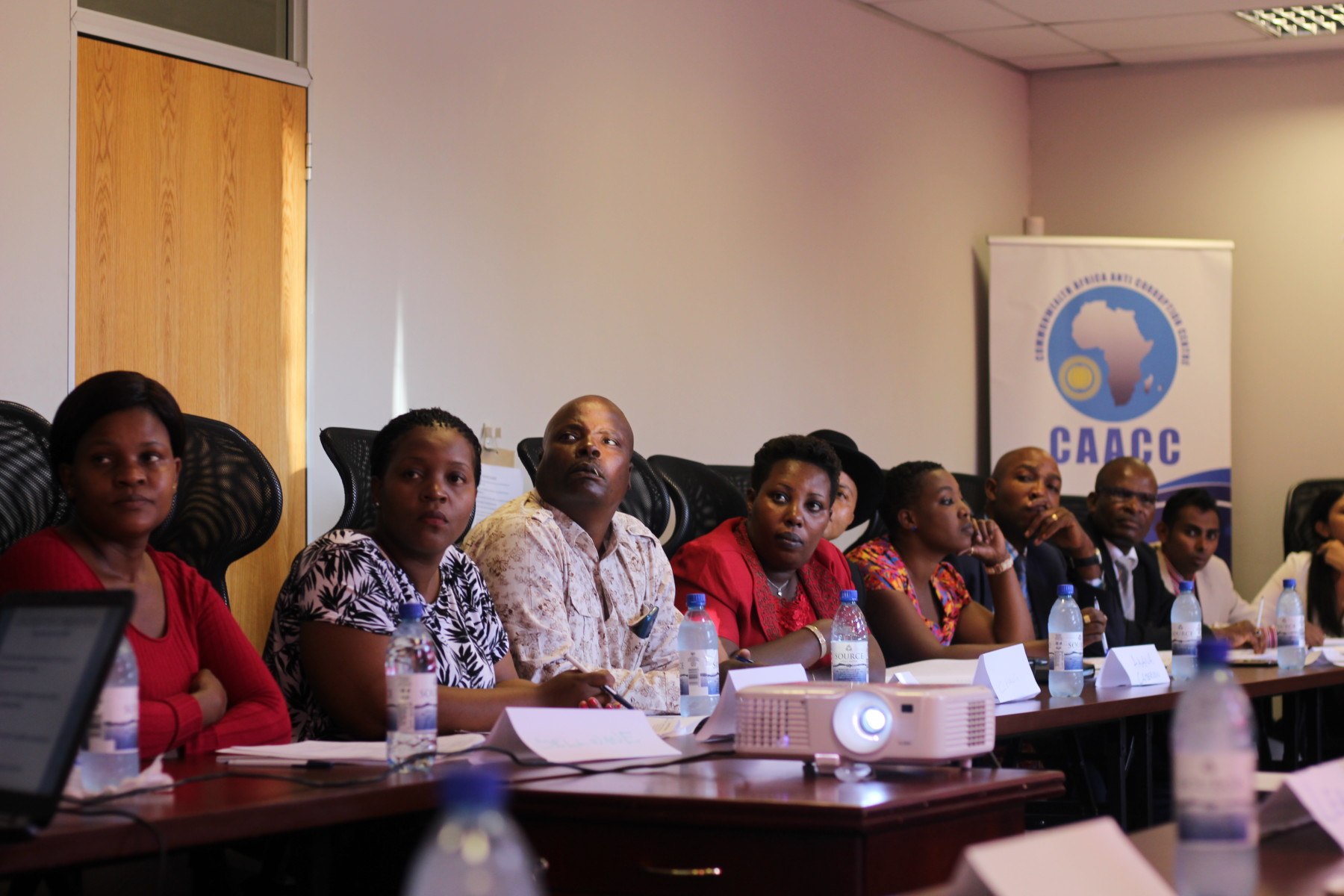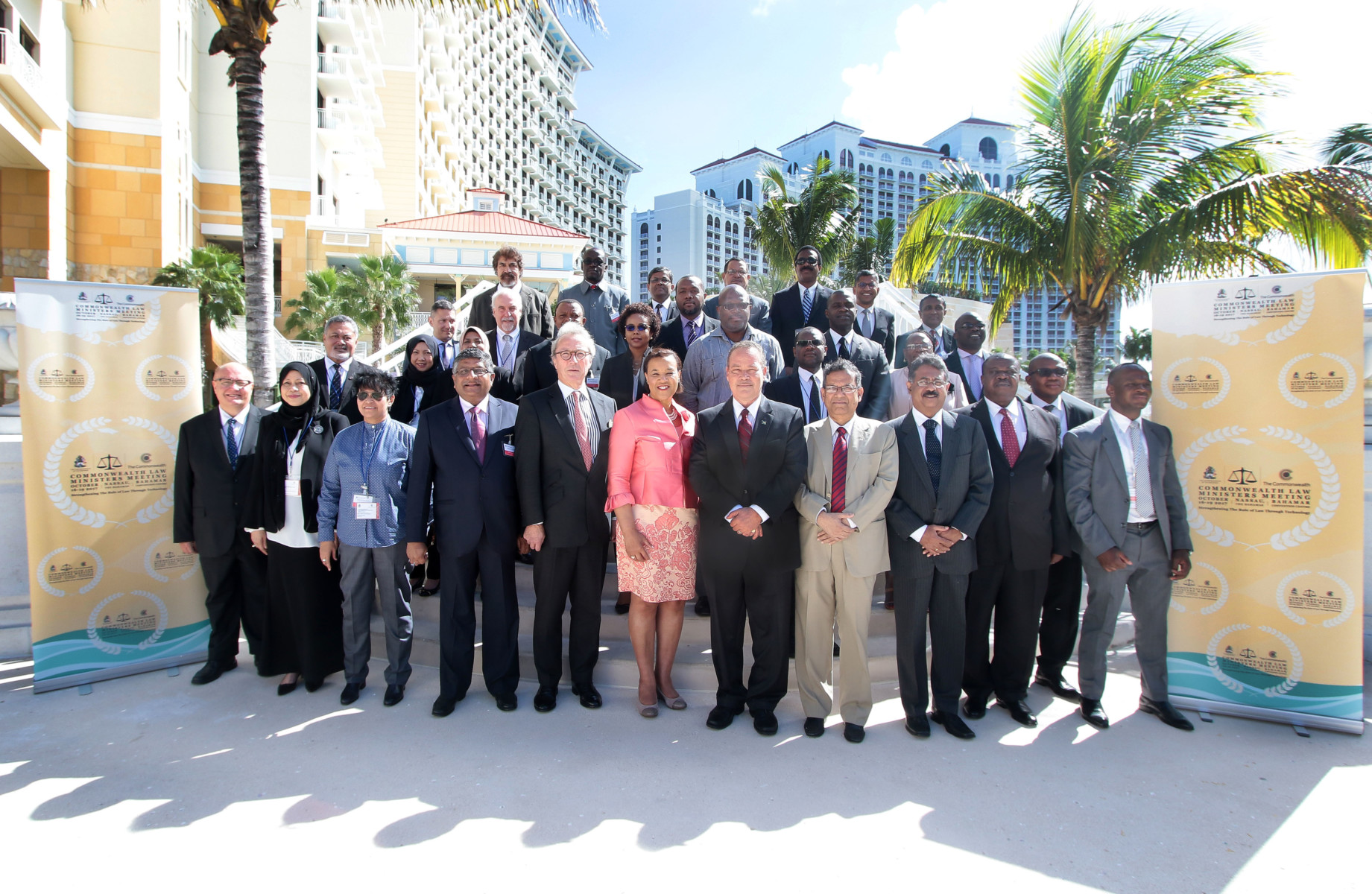Irene Morikang Tche is a research officer at Cameroon’s National Anti-Corruption Commission. In 2016, she participated in a training programme at the Commonwealth Africa Anti-Corruption Centre (CAACC) in Botswana. She was there with national trainers from anti-corruption agencies (ACAs) of 15 Commonwealth African countries.
The programme improved their skills and boosted their knowledge of management, combating corruption in procurement, and professional ethics and integrity. The aim was for the trainers to pass on the skills gained to peers in their home countries. Commenting on the programme, Irene said it “made me more confident, effective and efficient”. Read more about the progress of the CAACC in 2015-2017:
The CAACC opened in Botswana’s capital Gaborone in 2013. The Commonwealth Secretariat established it in partnership with the Government of Botswana and the Association of Anti-Corruption Agencies in Commonwealth Africa.
In addition to training, the centre provides:
- knowledge sharing across investigations
- public education
- corruption prevention
- forensics
- prosecution
- asset tracking.
Since its launch, the centre has been of benefit to nearly 20 ACAs, and trained nearly 7,000 personnel. It has established a help desk to provide national agencies with swift access to technical support and research. It has also worked with organisations such as the United Nations Office on Drugs and Crime and Transparency International.
Training
Programmes delivered by the centre cover:
- leadership and management
- practical skills for prevention and control
- investigation, prosecution and professional ethics
- monitoring and evaluation to measure and assess the impact of anti-corruption initiatives.

To date, heads of 20 different African ACAs have trained at our centre. So have senior managers from agencies in Zambia, Lesotho, Namibia, Mauritius, Botswana and South Africa.
In April 2016, the centre held a management and leadership skills training programme. Forty senior managers from South Africa’s Special Investigation Unit benefitted.
One of the trainees, Miseria Nyathi, said: “What we have are people who are experts in investigations and now they are experts in leadership and management. If you have the right management skills, you can better tackle corruption and undertake investigations.”
Further progress in 2015-2017
In 2016/17, we had some particularly good news about the CAACC. An independent evaluation of Commonwealth Africa Anti-Corruption programmes found that, through our centre:
“Commonwealth member states have benefited significantly from the programme and tangible capacity improvements have been realised by the anti-corruption agencies.”
A survey of ACA representatives found that 80% considered the courses to have significantly expanded their knowledge. In addition, 68% reported making significant changes to their work after returning from CAACC courses.

personnel trained at the Commonwealth Africa Anti-Corruption Centre
Our CAACC conference in Malawi
The biennial CAACC conference (May 2017) provided an important opportunity for lesson sharing and networking. The following is an example of the positive feedback we received:
“The Centre is the only avenue dedicated for systematic and quality capacity-building available to the Anti-Corruption Agencies in Africa.” Lucas Kondowe, Chair, Association of Anti-Corruption Agencies in Commonwealth Africa, and Director-General, Malawi Anti-Corruption Bureau.
The conference provided ACAs with an opportunity to analyse the performance of the CAACC through piloting a “Mapping Relationships” tool. This demonstrated that the agencies most active in sharing knowledge and good practice, in visits to each other and hosting visits, were: Botswana (highly active in both directions); Tanzania (highly active incoming); Malawi (highly active outgoing); and Mauritius (highly active in both directions).
“What we have are people who are experts in investigations and now they are experts in leadership and management. If you have the right management skills, you can better tackle corruption and undertake investigations.”
— Miseria Nyathi, trainee
The tool demonstrated that all agencies benefitted from the learning. However, there was a lack of evidence of learning leading to the implementation of changes. In spite of this, taking exchanges of learning with Tanzania’s ACA as an example, the findings show:
- lessons from Ghana’s visit to Tanzania shaped the implementation of Ghana’s Anti-Corruption Strategy and Plan
- Sierra Leone’s visit to Tanzania facilitated the development and institutionalisation of the Service Charters by its ACA
- Uganda noted that a platform was created for sharing knowledge between its ACA and Tanzania’s ACA.
In 2015/16, the CAACC provided technical support and capacity-building to 18 African ACAs.
Altogether, 154 ACA staff (31% female) benefitted from capacity-building, including 35 ACA staff who were trained to establish monitoring and evaluation (M&E) units within their ACAs. Those units performed corruption measurement and assessment for the first time.
Botswana, South Africa, Tanzania and Zambia established M&E units. A further 89 officials (27% female) received in-country training in Botswana, South Africa and Zambia on the effective management of ACAs.
An online platform was launched to support ongoing engagement with and between the ACAs. The United Nations Office on Drugs and Crime (UNODC) committed to support the CAACC by sponsoring resource persons to deliver world class programmes. This will be vital for the future sustainability of the programme.
The Secretariat organised a forum for Heads of ACAs and integrity commissions in Africa and the Caribbean. This was in partnership with regional ACA associations established by the Secretariat to peer-review reports/strategies and share transferable experiences. Over 70 officials attended the Caribbean meeting, while 100 officials participated in the Commonwealth Africa meeting.

